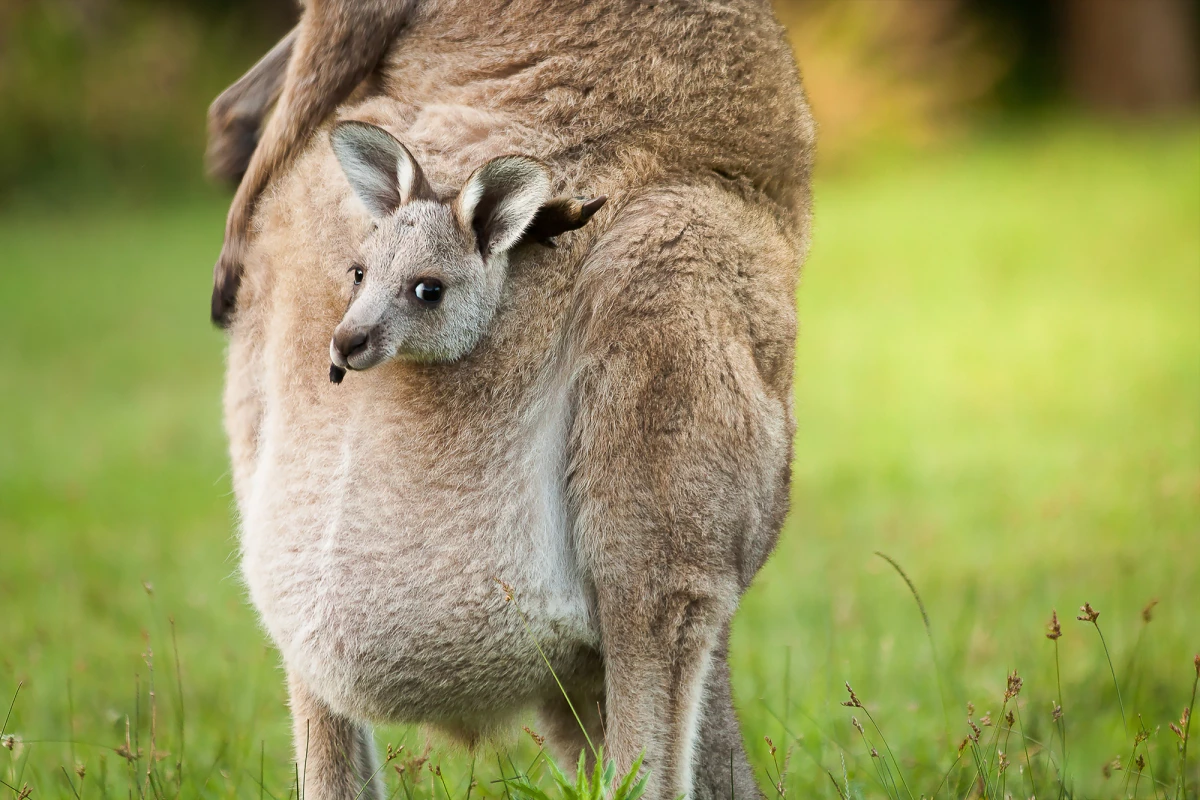Make all the jokes you want, but the methane emitted in the form of cow burps and farts is actually a major source of greenhouse gas emissions. That could soon change, however, thanks to bacteria found in baby kangaroo feces.
In the recent past, cattle feed additives such as seaweed, tropical leaves and fish oil have been proposed for keeping the bacteria in cows' stomachs from producing methane as they digest food. All of these additives have been used with varying degrees of success.
Chemical bacteria inhibitors and vaccines have also been explored. Unfortunately the methane-producing bacteria develop a resistance to the chemicals, while a wide variety of vaccines would be required for all the different types of cow-gut bacteria that are found throughout the world.
Additionally, some supplements, inhibitors and vaccines may negatively affect other biological functions in cows, resulting in problems such as reduced milk production.
Seeking a more effective alternative, a Washington State University team recently looked to a type of bacteria found in the foregut of kangaroos. Previous studies had already shown that instead of producing methane, the kangaroo microbes produce acetic acid. Further research revealed that the bacteria only occurs in baby kangaroos, not adults.
Although the scientists were unable to isolate the exact bacteria responsible, they proceeded to grow a mixed bacterial culture using samples of baby kangaroo feces. That culture was subsequently introduced to a simulated cow rumen (part of the stomach), shortly after a chemical had been used to temporarily reduce the number of methane-producing bacteria already present in the model.
It was found that for several months, the acetic-acid-producing bacteria from the culture outcompeted and thus replaced the methane-producing bacteria, growing to the numbers required for the digestive process. As a result, for that period, no methane was produced by the simulated rumen. This success was due largely to the fact that both types of bacteria grow at approximately the same rate.
Tests on actual living cows are now being planned.
"It is a very good culture. I have no doubt it is promising," said the lead scientist, Prof. Birgitte Ahring. "It could be really interesting to see if that culture could run for an extended period of time, so we would only have to inhibit the methane production from time to time. Then, it could actually be a practice."
A paper on the research has been published in the journal Biocatalysis and Agricultural Biotechnology.
Source: Washington State University




